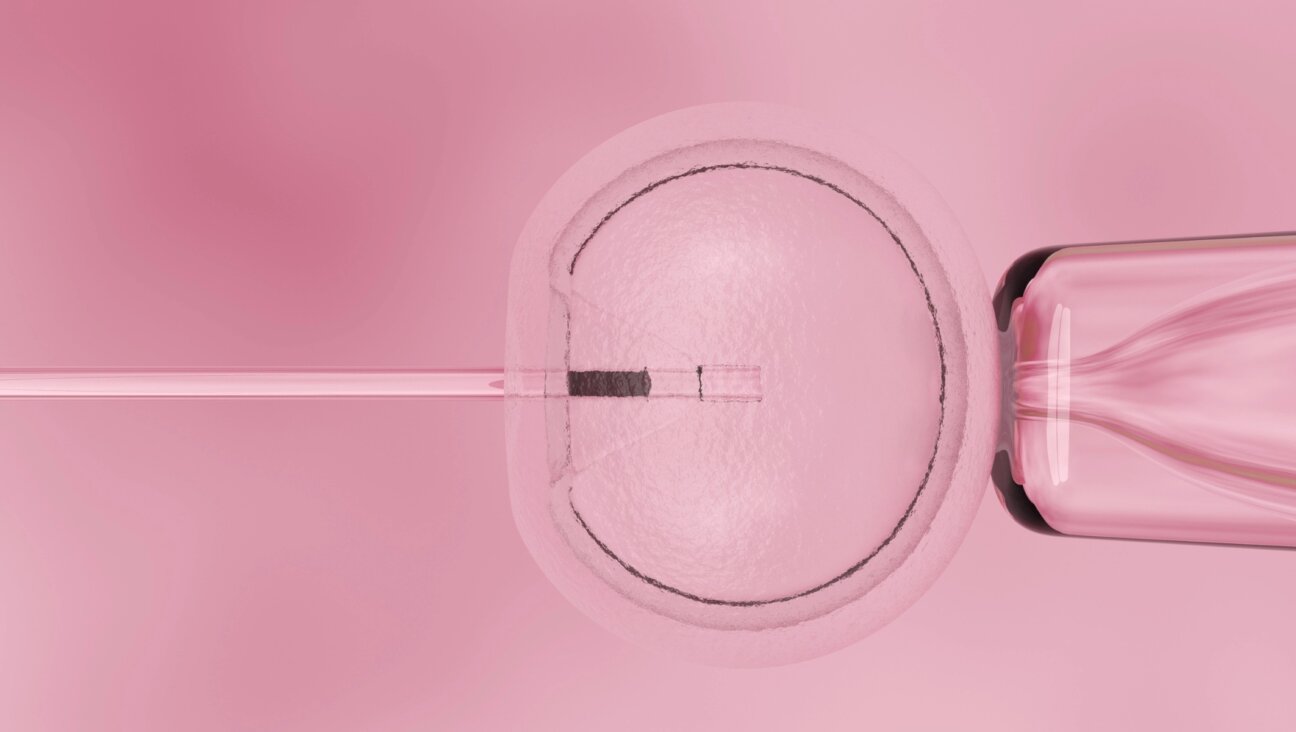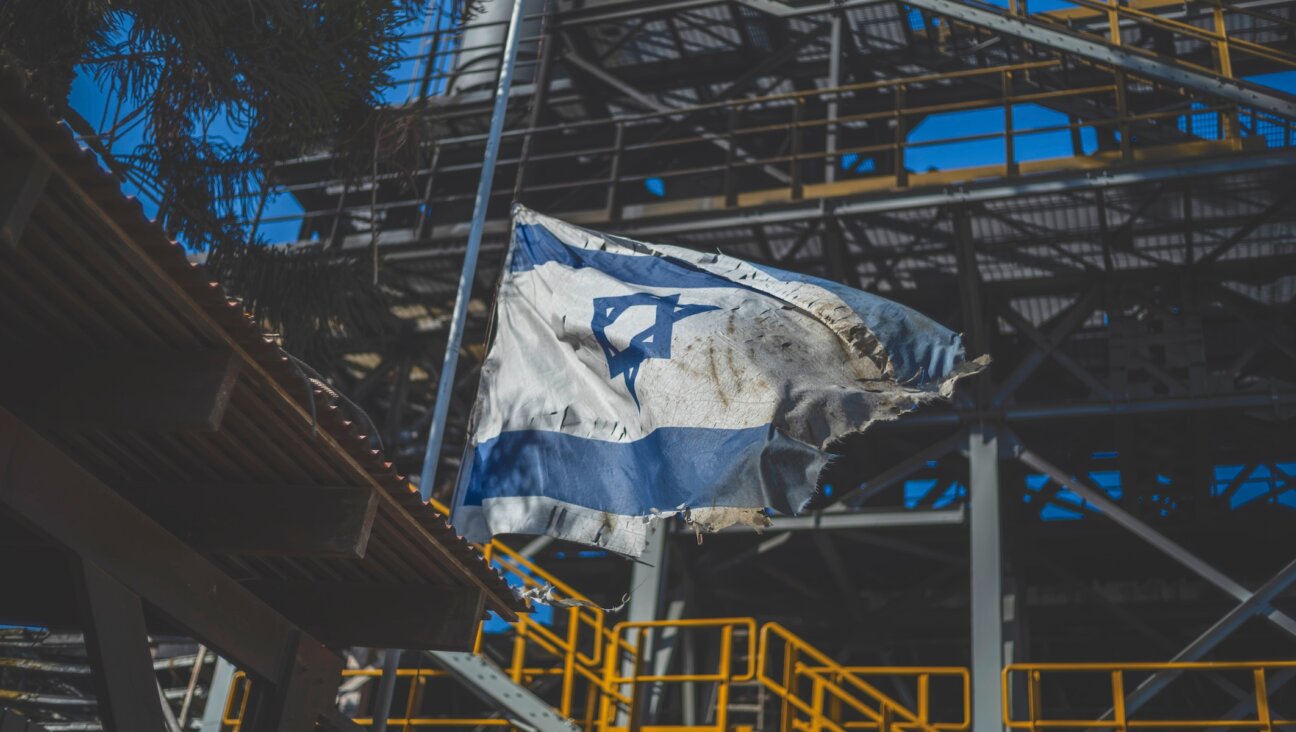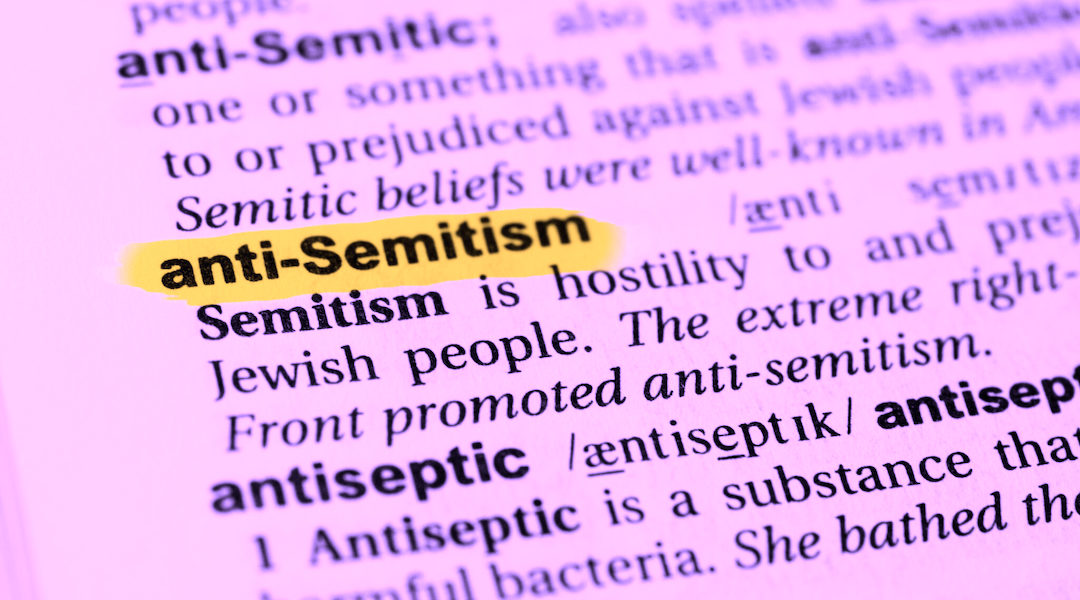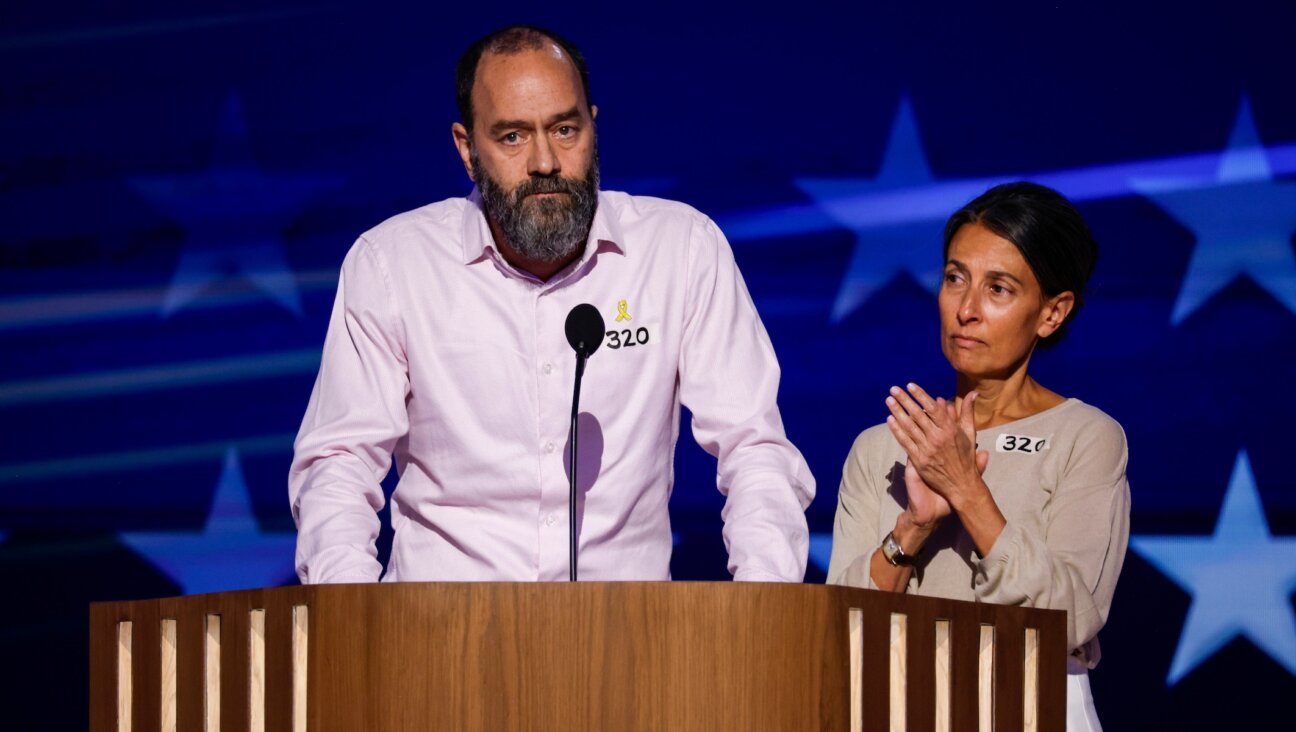In first, ultra-Orthodox news site apologizes to women for blurring their faces
This is the first time a lawsuit has ever been filed against a Haredi publication for blurring out the faces of women, which is a common practice in ultra-Orthodox media

The photo as published in Behadrei Haredim. Courtesy of Israeli President’s Spokesperson
This article originally appeared on Haaretz, and was reprinted here with permission. Sign up here to get Haaretz’s free Daily Brief newsletter delivered to your inbox.
In an unprecedented acknowledgement of wrongdoing, an ultra-Orthodox news site in Israel has agreed to issue an apology to a group of women whose faces were blurred out of a photo it published and to pay each of them compensation.
The group of women includes leaders of the Reform and Conservative movements in Israel as well as of Women of the Wall, the multidenominational feminist prayer group.
The Israel Religious Action Center had filed a suit in the Jerusalem Magistrate’s Court in May against Behadrei Haredim for publishing the photo, citing gender discrimination. The photo shows a meeting held last December between President Isaac Herzog and leaders of the non-Orthodox movements, in which both men and women participated. Only the women’s faces were smudged out.
The meeting was called to discuss ways to move forward with implementing the Western Wall deal, which was meant to provide the Reform and Conservative denominations with a proper prayer space at the Jewish holy site.
After the lawsuit was filed, the two sides agreed to enter into arbitration, and an out-of-court agreement was finally reached last week.
The apology was published on the homepage of the popular ultra-Orthodox news site just before Shabbat began, for the duration of an hour, and just after Shabbat ended, for the duration of an hour. Lawyers representing IRAC complained that this was not enough time for it to get proper notice, and Behadrei Haredim agreed to publish the apology again for two hours on Monday morning.
This is the first time a lawsuit has ever been filed against a Haredi publication for blurring out the faces of women, which is a common practice in ultra-Orthodox media. It is also the first time that a Haredi publication has ever issued an apology to the women affronted by this practice.
In its apology, Behadrei Haredim said it “asks to express our regret at the hurt caused because of the publication of the photo to the women who appeared in it.”
The women whose faces were blurred out were Rakefet Ginsberg, executive director of the Conservative-Masorti movement in Israel; Anna Kislanski, executive director of the Reform movement in Israel; Orly Erez-Lakhovsky, executive director of IRAC; Yochi Rappaport, executive director of Women of the Wall; and Tamar Gottlieb, vice chairwoman of the feminist prayer group.
Ori Narov, one of the IRAC lawyers who represented the women in the negotiations, said he was not at liberty to disclose the amount of compensation they had received.
“This is a very significant achievement for us,” he said. “I hope it will deter ultra-Orthodox publications in the future from blurring out women, and I hope that ultra-Orthodox women will now understand that they have grounds to sue these publications and receive compensation if and when their faces are blurred.”
Responding to the out-of-court agreement, the women represented by IRAC issued the following statement on Sunday: “Especially at a time like this, when women’s rights are under attack, we attribute great importance to this agreement, which establishes that the exclusion of women is illegal and that exclusion will require compensation. Regretfully, there are many places in Israel, including the Western Wall, where women are subjected to exclusion and discrimination. The liberal Jewish denominations will continue to stand at the forefront of the struggle for women’s rights and against the exclusion of women in the public space.”
A message from our Publisher & CEO Rachel Fishman Feddersen

I hope you appreciated this article. Before you go, I’d like to ask you to please support the Forward’s award-winning, nonprofit journalism so that we can be prepared for whatever news 2025 brings.
At a time when other newsrooms are closing or cutting back, the Forward has removed its paywall and invested additional resources to report on the ground from Israel and around the U.S. on the impact of the war, rising antisemitism and polarized discourse.
Readers like you make it all possible. Support our work by becoming a Forward Member and connect with our journalism and your community.
— Rachel Fishman Feddersen, Publisher and CEO























